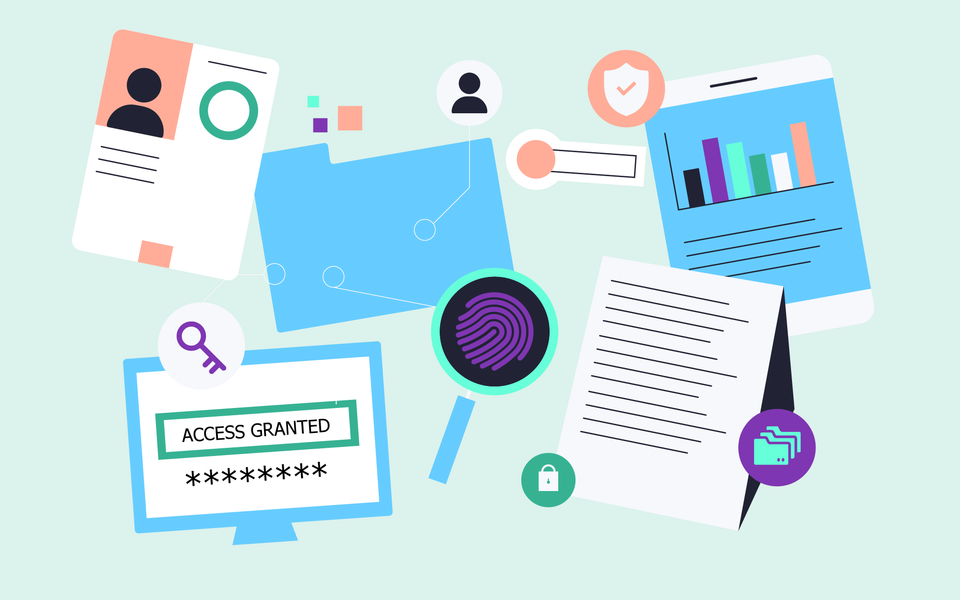BalanceID: Enabling Secure Access and Managing Risk in SNAP and Medicaid

The National Institute of Standards and Technology (NIST), the Digital Benefits Network (DBN) at the Beeck Center for Social Impact + Innovation at Georgetown University, and the Center for Democracy and Technology (CDT) are collaborating on a two-year-long collaborative research and development project to adapt NIST’s digital identity guidelines to better support the implementation of public benefits policy and delivery while balancing security, privacy, equity, and usability.
NIST, DBN, and CDT will carry out a robust community engagement to develop voluntary resources that reflect input from a variety of voices – including federal partners, state benefit program administrators, state IT and cybersecurity leaders, digital identity experts, technologists, advocates, and beneficiaries and others with direct experience navigating the U.S. public benefit landscape. This collaboration will produce a voluntary community profile of NIST’s Digital Identity Guidelines (Special Publication 800-63). This profile will support and empower practitioners and public sector leaders in evaluating the necessity and level of authentication and identity proofing practices in specific benefits delivery scenarios.
The Challenge
In response to heightened fraud and related cybersecurity threats during the COVID-19 pandemic, some benefits-administering agencies began to integrate new safeguards such as individual digital accounts and identity verification, also known as identity proofing, into online applications. However, the use of certain approaches, like those reliant upon facial recognition or data brokers, has raised questions about privacy and data security, due process issues, and potential biases in systems that disproportionately impact communities of color and marginalized groups. Simultaneously, adoption of more effective, evidence-based methods of identity verification has lagged, despite recommendations from NIST (Question A4) and the Government Accountability Office.
State benefits-administering agencies face significant challenges protecting beneficiary information and ensuring the integrity of their programs. Appropriately balancing access and security, while taking into account nuanced program circumstances and populations, is vital to meaningfully improving public benefits policy and delivery.
Work to Date
- After announcing this collaborative project in June 2024, the project team hosted a virtual kick-off workshop on August 1 (see slides below). Over 100 individuals representing federal and state government, nonprofits, civic tech, and private industry joined the session. During that workshop, the project team invited feedback about which benefits programs the project should focus on, and what types of voluntary resources we should produce.
- On September 18, we hosted a second workshop (slides below) to coincide with the Digital Benefits Network’s annual convening, BenCon. The project team invited additional feedback to inform our work, including discussing what factors drive state government decision-making related to digital identity as well as what research is needed to understand applicant and beneficiary experiences related to digital identity. The team also requested additional feedback to inform project deliverables.
- From our engagement efforts so far, we’ve heard strong interest in this project addressing integrated online benefits applications (applications that allow users to apply for multiple programs), specifically applications that include SNAP and Medicaid.
- We’ve also heard a strong need for resources that can help state benefits administering agencies conduct risk assessments related to digital identity, plus resources that map out user journeys under different levels of authentication and identity proofing.
- Based on this feedback, we plan to focus the project on integrated online applications that include SNAP and Medicaid, and build resources that help state benefits administering agencies conduct digital identity risk management processes and understand the user journey under different authentication and identity proofing approaches.
- From January – June of 2025 we ran a monthly working group to give interested stakeholders ongoing opportunities to contribute to this project.
- In April of 2025 we published our draft, Digital Identity 101: An Introduction to Digital Identity in Public Benefits Programs, which explains the core concepts of digital identity and how they apply to public benefits programs. This is meant to be an introductory tool for state agencies engaging in a Digital Identity Risk Management (DIRM) process.
- In February 2026, we released a draft Digital Identity Risk Management (DIRM) Process Tool, as well as an accompanying Overview + User Guide. Learn more and download the tool on the Digital Government Hub.
Additional Resources
- Read the press release
- Find information about this project on NIST’s website
- Read NIST’s current digital identity guidelines and the most recent draft revisions
- View slides from project workshops where we invited feedback from cross-sector stakeholders on our project scope and planned deliverables:
- Learn more about digital identity in public benefits on the Digital Government Hub
Get Involved
- Email balanceID@georgetown.edu with questions or to learn more about the project.
Questions?
Reach out to balanceID@georgetown.edu.